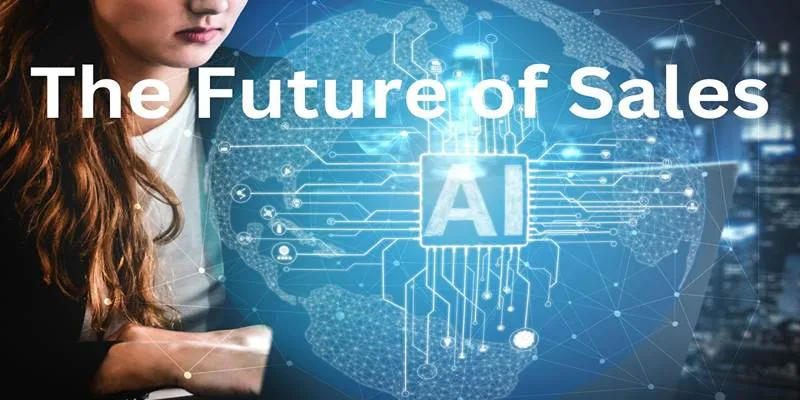Artificial intelligence (AI) is transforming social media marketing by enabling highly personalized consumer experiences. With AI-powered tools, businesses can analyze user behavior, predict preferences, and deliver tailored content that resonates with audiences. This transformation not only enhances engagement but also fosters meaningful connections between brands and consumers. Discover how ethical AI practices are enhancing transparency and trust in today’s digital age.
The Role of AI in Personalization:

AI is central to modern personalization, allowing businesses to understand consumer desires more effectively. By analyzing data, AI identifies preferences and predicts behaviors. Machine learning examines past interactions, purchase histories, and online activity to generate insights, enabling the delivery of more personalized experiences.
Predictive Analytics for Tailored Recommendations
AI-driven predictive analytics revolutionize how businesses anticipate customer needs. By analyzing browsing habits, purchase patterns, and real-time interactions, companies can offer experiences that feel custom-made. Consider how Amazon predicts your next purchase or how Netflix recommends the perfect show.
This level of personalization not only simplifies the customer journey but also creates deeper connections, builds loyalty, and boosts sales by presenting desirable options. It’s smarter, faster, and more engaging for everyone.
Chatbots and Virtual Assistants for Instant Support
AI-powered chatbots are transforming customer service by delivering real-time assistance and resolving inquiries without human intervention. Available 24/7, these virtual assistants provide fast and efficient solutions to customer issues. Many businesses now integrate AI chatbots across multiple platforms, including websites, e-commerce stores, and social media channels like Facebook Messenger and Instagram DMs, ensuring consistent and immediate support.
Dynamic Pricing and Personalized Discounts
Retailers use AI for dynamic pricing strategies, adjusting prices in real time based on demand, competitor pricing, consumer browsing behavior, and purchase history. For instance, during peak shopping periods or low inventory, businesses can optimize revenue by increasing prices, while personalized discounts encourage specific purchases.
Social Media as a Personalization Powerhouse:
Social media platforms collect extensive user data, enabling businesses to deliver highly targeted marketing campaigns.
Behavioral Targeting and Customized Advertising
Platforms like Facebook, Instagram, and LinkedIn utilize advanced AI to analyze user behavior, interests, and engagement patterns. AI examines user interactions, searches, and likes, providing advertisers with actionable insights. This results in highly personalized ads tailored to individual preferences, leading to higher click-through rates, stronger engagement, and increased conversions.
Smarter Influencer Marketing with AI Insights
Influencer marketing thrives on authenticity, and AI enhances this by providing data-driven insights. AI tools analyze factors such as engagement rates, audience demographics, and content relevance to a brand’s message. This helps businesses identify influencers whose followers align with their target market, ensuring highly effective campaigns.
Real-Time Engagement with AI-Optimized Strategies
AI enables brands to connect with their audience in real time by optimizing posting schedules, content formats, and messaging styles. By analyzing user activity patterns, AI identifies optimal posting times and most engaging content formats, such as videos or interactive polls. Sentiment analysis tools provide immediate feedback on audience reactions, helping businesses gauge campaign performance instantly.
Benefits of Personalized Consumer Experiences:
Personalized experiences are crucial for driving customer satisfaction, fostering loyalty, and accelerating business growth. Here’s how personalization transforms your business:
Boosted Customer Engagement
Personalized content and recommendations capture and hold user attention. By delivering tailored, relevant experiences, businesses can increase user interaction, strengthen connections, and make customers feel valued, encouraging return visits.
Higher Conversion Rates
Targeted marketing campaigns that align with individual preferences dramatically improve conversion rates. Resonant offers or recommendations increase the likelihood of consumer action, driving sales and maximizing marketing efficiency.
Strengthened Brand Loyalty
When consumers feel understood by a brand, it builds trust and loyalty, fostering repeat purchases and positive word-of-mouth. Consistently delivering meaningful, personalized interactions deepens customer loyalty and establishes a strong brand presence.
Streamlined Customer Service
AI-driven support tools, like chatbots and automated systems, enhance customer service efficiency. These technologies handle routine inquiries, reduce response times, and resolve issues quickly, leading to higher customer satisfaction and allowing businesses to focus on complex tasks.
Ethical Considerations and Challenges:

While AI-driven personalization offers numerous benefits, it also raises ethical concerns regarding data privacy and consumer trust.
Data Privacy and Security
Collecting and analyzing consumer data must comply with regulations like GDPR and CCPA. Businesses must ensure transparency in data usage and obtain proper consent.
Risk of Over-Personalization
Excessive personalization can feel intrusive, leading to consumer discomfort. Striking the right balance is crucial to maintaining trust.
Algorithmic Bias
AI systems can unintentionally reinforce biases if trained on skewed data. Companies must regularly audit algorithms to ensure fairness and inclusivity.
Future Trends in AI and Social Media Personalization:
The future of personalized consumer experiences will see even more advanced AI integration. Key trends include:
- Hyper-Personalized Content with Generative AI : Generative AI tools will enable brands to create customized content, like personalized videos and dynamic product descriptions, in real time.
- Voice and Visual Search Optimization : As voice assistants and image recognition technologies evolve, businesses will optimize content for voice and visual searches to enhance accessibility.
- Augmented Reality (AR) for Immersive Shopping : Social media platforms are integrating AR features, allowing users to virtually try products before purchasing, further personalizing the shopping experience.
- AI-Powered Social Commerce : Social media platforms will continue integrating seamless shopping features, with AI recommending products directly within users’ feeds.
Conclusion:
AI and social media have revolutionized consumer experiences by enabling hyper-personalized interactions. From predictive recommendations to real-time customer support, businesses can engage with their audience meaningfully. However, addressing ethical considerations around data privacy and algorithmic fairness is essential to maintaining consumer trust.
 zfn9
zfn9






















